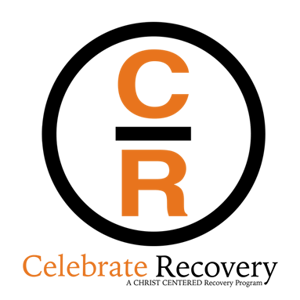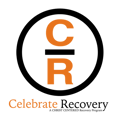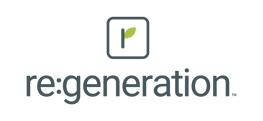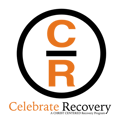What's the Difference Between Celebrate Recovery and Re:generation?

What's the Difference Between Celebrate Recovery and Re:generation?
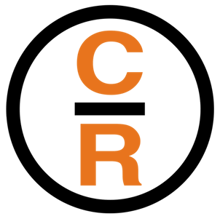
Learn The Differences Between Celebrate Recovery and Re:generation
People looking for freedom from addictions, abuse, depression, and many other struggles have found healing through Christ-centered 12-step programs. Celebrate Recovery and Re:generation, two of the best-known Christian recovery ministries, are both great programs run by passionate believers, and they are co-laborers, not competitors. But there are key differences that might make one of the ministries a better fit for your organization’s needs or goals.
Genesis of Celebrate Recovery
Celebrate Recovery was started by John Baker in 1991 under the leadership of Saddleback Church and its pastor, Rick Warren. Having personally benefitted from his time in Alcoholics Anonymous, Baker envisioned how powerful a similar program could be if it was explicitly Christ-centered and welcomed people with any kind of struggle. They sought to “bring healing and restoration to individuals and families whose lives had been fractured by hurts, hang-ups, and habits.” The program was extremely successful and is now used in tens of thousands of churches.
Celebrate Recovery tweaked the original 12 Steps to include more Christian language and added 8 Recovery Principles based on the Beatitudes. Ministry nights begin with a large open group, which may include testimonials, teachings, worship music, and the recitation of the Steps and the Serenity Prayer. Participants then break into smaller “closed groups.”
Re:generation Program Formation
Watermark Community Church ran a large Celebrate Recovery ministry group for many years and saw God do great work through it. Without Celebrate Recovery, there would be no Re:generation. Watermark ended up altering the program in several notable ways based on the conviction of its leaders. The primary difference was a shift from Celebrate Recovery’s goal of “bringing sustainable recovery and healing to our hurts” to a deeper goal of developing “full devotion to Christ in all areas of life.” With this in mind, Nathan Graybill began developing Re:generation in 2013.
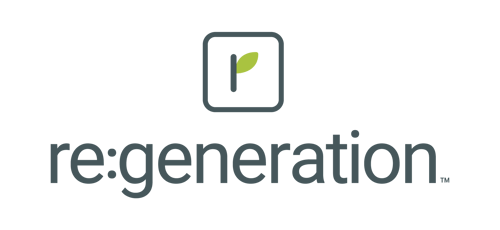
What is Re:generation?
Watermark Community Church ran a large Celebrate Recovery ministry group for many years and saw God do great work through it. Without Celebrate Recovery, there would be no re:generation. Watermark ended up altering the program in several notable ways based on the conviction of its leaders. The primary difference was a shift from Celebrate Recovery’s goal of “bringing sustainable recovery and healing to our hurts” to a deeper goal of developing “full devotion to Christ in all areas of life.” With this in mind, Nathan Graybill began developing re:generation in 2013.
The new curriculum was intentionally designed to add more spiritual depth to promote spiritual formation:
- Daily content was introduced to facilitate daily connection with Christ, who is the means to freedom, health, and spiritual formation.
- Many spiritual formation elements were added, such as a spiritual gifts assessment and repentance plans.
- Clear distinctions were defined between forgiveness, amends, and reconciliation.
- Content emphasizes finding personal identity in Christ.
- Inventory works specifically to identify idols.
- Supplemental curriculum was added for abuse survivors.
Key Similarities Between Celebrate Recovery and Re:generation
Some key similarities between the two programs include:
- Both are led by brothers and sisters in Christ who have been freed by Him and long to share that freedom with others who are hurting or stuck.
- Both point to Christ as the source of healing.
- Both utilize a 12-step program format similar to the original model used by Alcoholics Anonymous, although Re:generation has made slight modifications to more clearly emphasize spiritual formation.
- Both emphasize community, sharing, and accountability.
- Both utilize a Large Group + Small Group format, though Celebrate Recovery holds these on separate nights, while Re:generation uses a one-night ministry model.
- Both offer a student program (The Landing, which runs concurrently with Celebrate Recovery, and the semester-based Re:generation for Students).
- Both have helped countless individuals find freedom from addictions and other struggles.
- Both take about a year to complete.
Key Differences Between Celebrate Recovery and Re:generation
Some key differences between the two programs include:
|
|
|
|
|
Objective for Participants |
Freedom from a specific sin or struggle |
Full devotion to Christ, with “sobriety” from addiction being a road-marker along the way |
|
Homework |
One 10-minute lesson per week on average |
Daily curriculum that includes Scripture memory and prayer |
|
Guidance |
Participants choose “sponsors” - generally former participants who are familiar with the program |
Participants choose “mentors” - generally Christians who are already in the participant’s life outside of the recovery ministry |
|
Small Groups |
Participants are placed in open-sharing groups with others who share their primary sin or struggle |
Open groups host participants with any issue, emphasizing the common roots of struggles |
|
Locations |
Offered at 35,000 churches and prisons |
Offered at several hundred churches and prisons |
|
Virtual Groups |
Available only as an alternative meeting option for local groups |
Available |
|
Resources for Leaders |
90-day start-up plan, leader guides, programmed large group teaching |
Direct coaching for every church or organization running Re:generation, training for every week of content, flexible large group programming |
|
Church of Origin |
||
|
Year Started |
1991 |
2013 |
Key Differences Between Celebrate Recovery and Re:generation
Some key differences between the two programs include:
|
|
|
|
|
Objective for Participants |
Freedom from a specific sin or struggle |
Full devotion to Christ, with “sobriety” from addiction being a road-marker along the way |
|
Homework |
One 10-minute lesson per week on average |
Daily curriculum that includes Scripture memory and prayer |
|
Guidance |
Participants choose “sponsors” - generally former participants who are familiar with the program |
Participants choose “mentors” - generally Christians who are already in the participant’s life outside of the recovery ministry |
|
Small Groups |
Participants are placed in open-sharing groups with others who share their primary sin or struggle |
Open groups host participants with any issue, emphasizing the common roots of struggles |
|
Locations |
Offered at 35,000 churches and prisons |
Offered at several hundred churches and prisons |
|
Virtual Groups |
Available only as an alternative meeting option for local groups |
Available |
|
Resources for Leaders |
90-day start-up plan, leader guides, programmed large group teaching |
Direct coaching for every church or organization running re:generation, training for every week of content, flexible large group programming |
|
Church of Origin |
||
|
Year Started |
1991 |
2013 |
Key Differences Between Celebrate Recovery and Re:generation
Some key differences between the two programs include:
|
|
|
|
|
OBJs for PCPs |
Freedom from a specific sin or struggle |
Full devotion to Christ, with “sobriety” from addiction being a road-marker along the way |
|
Hw |
One 10-minute lesson per week on average |
Daily curriculum that includes Scripture memory and prayer |
|
GUID |
Participants choose “sponsors” - generally former participants who are familiar with the program |
Participants choose “mentors” - generally Christians who are already in the participant’s life outside of the recovery ministry |
|
Small Groups |
Participants are placed in open-sharing groups with others who share their primary sin or struggle |
Open groups host participants with any issue, emphasizing the common roots of struggles |
|
LOCs |
Offered at 35,000 churches and prisons |
Offered at several hundred churches and prisons |
|
Virtual Groups |
Available only as an alternative meeting option for local groups |
Available |
|
Leaders RESs |
90-day start-up plan, leader guides, programmed large group teaching |
Direct coaching for every church or organization running re:generation, training for every week of content, flexible large group programming |
|
Church of Origin |
||
|
Year Started |
1991 |
2013 |
Next Steps
We would love to help you pray and process how to best serve your church and community. You can find more information on Re:generation, including stories of life change and an interactive tool that identifies personal struggles, at regenerationrecovery.org.
You can also learn more about bringing Re:generation to your church or organization and complete a ministry application form for next steps.

